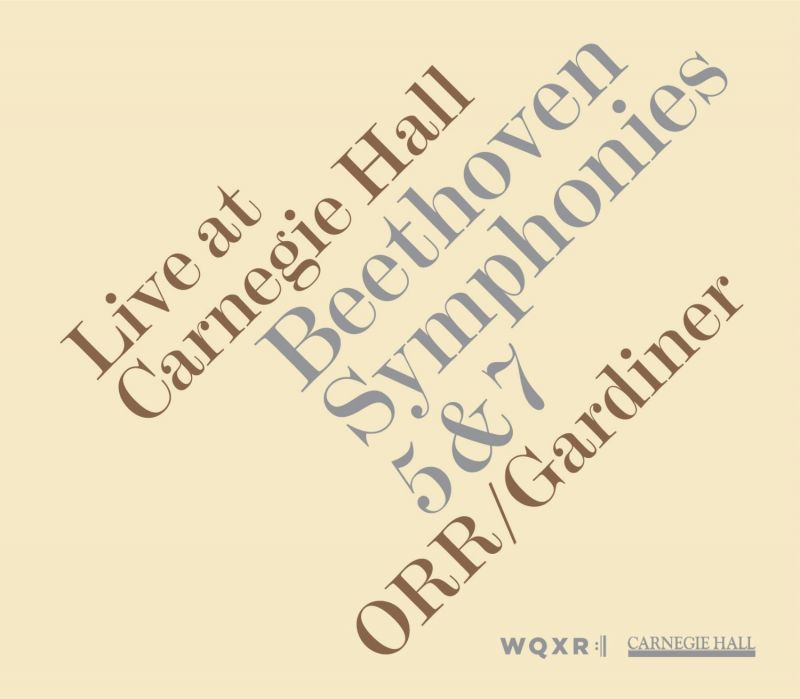BEETHOVEN Symphonies Nos 5 & 7
WQXR’s live recording of the ORR at Carnegie Hall
View record and artist detailsRecord and Artist Details
Composer or Director: Ludwig van Beethoven
Genre:
Orchestral
Label: Soli Deo Gloria
Magazine Review Date: 01/2013
Media Format: CD or Download
Media Runtime: 73
Mastering:
Stereo
DDD
Catalogue Number: SDG717

Tracks:
| Composition | Artist Credit |
|---|---|
| Symphony No. 7 |
Ludwig van Beethoven, Composer
John Eliot Gardiner, Conductor Ludwig van Beethoven, Composer Orchestre Révolutionnaire et Romantique |
| Symphony No. 5 |
Ludwig van Beethoven, Composer
John Eliot Gardiner, Conductor Ludwig van Beethoven, Composer Orchestre Révolutionnaire et Romantique |
Author: Edward Seckerson
John Eliot Gardiner and his resplendent Orchestre Révolutionnaire et Romantique rejoice here in the sheer physicality of the music, the bounding rhythms, the stomping accents. There’s an implicit delirium in this music that would culminate in a dance of death were it not so life-affirming. Gardiner’s tempo for the second-movement Allegretto is significantly slower than the metronome (as witness Chailly) but the relationship between the wind and strings (period instruments far more equal in the balance) and the give and take between subject and countersubject lends an expressive mobility. There’s still an air of slow dance about it, breathlessly superseded by the scherzo with its whiplash reflexes (so much speedier with a leaner, meaner ensemble) and the excitement of sustained natural trumpets in the Trio. The hair-raising reiterations of the finale, driven to the point of exhaustion – the most exhilarating kind of exhaustion – are accentuated by the immediacy of the sound, and the penultimate piledriving climax and coda are absolutely thrilling, with brazen horns again dominating.
The Fifth registers marginally lower on the Richter scale but is again characterised by a propulsive energy. The plangency of that isolated moment of reflection for solo oboe in the first movement is eerily poignant here and I love, too, the way Gardiner brings home the unforgiving militarism of the piece, the way the martial brassiness of trumpets and drums pompously interrupts the homely variations of the second movement. The roar into the light of the finale is tremendous, still more the mounting jubilation as a gruff, overfed bassoon signals the C major home stretch.
These are the kind of performances that remind us of what a revolution of reassessment period-instrument bands provoked. The shock of newness in Beethoven prevails.
Explore the world’s largest classical music catalogue on Apple Music Classical.
Included with an Apple Music subscription. Download now.

Gramophone Digital Club
- Digital Edition
- Digital Archive
- Reviews Database
- Events & Offers
From £9.20 / month
Subscribe
Gramophone Club
- Print Edition
- Digital Edition
- Digital Archive
- Reviews Database
- Events & Offers
From £11.45 / month
Subscribe
If you are a library, university or other organisation that would be interested in an institutional subscription to Gramophone please click here for further information.






